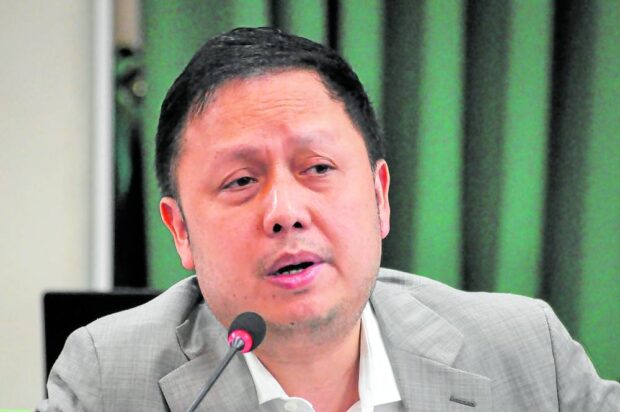Co says P2B aid for rice retailers may be sourced from unprogrammed funds

FILE PHOTO: House committee on appropriations chair and Ako Bicol party-list Rep. Elizaldy Co. Photo from Office of Congressman Co
MANILA, Philippines — House committee on appropriations chair and Ako Bicol party-list Rep. Elizaldy Co said Tuesday that the P2 billion assistance for rice retailers that would be affected by Executive Order No. 39 will be taken from the government’s unprogrammed funds.
EO No. 39, signed by President Ferdinand Marcos Jr. on August 31, puts a P41 to P45 per kilogram price ceiling on rice. But rice retailers, especially small merchants, were not too happy about this move, stressing it would only result in more business losses.
READ: Rice retailers to defy price caps to avoid losses
In an ambush interview on the sidelines of the budget hearing at the House of Representatives, Co said they are looking at unprogrammed funds and the budget of the Department of Social Welfare and Development (DSWD) headed by Secretary Rex Gatchalian as possible sources for the aid.
According to the Department of Budget and Management (DBM), unprogrammed appropriations “provide standby authority to incur additional agency obligations for priority programs or projects when revenue collection exceed[s] targets.”
Article continues after this advertisement“We are looking at the unprogrammed, and hopefully, it was checked that there’s an available fund and at the same time, Secretary Rex still has funds, and the priority of our President is NCR (National Capital Region) because it is the most affected area,” Co told reporters.
Article continues after this advertisement“Then eventually, if we trace — actually we were asked to find — that was the instruction of the President and Secretary Rex to the DTI (Department of Trade and Industry) to find the retailers, the indigent ones only because there are retailers who are at the same time importers or are owners of condominium, cars, it’s not them. We are looking for small retailers, those in sari-sari stores, barangays, or those in markets,” he added.
The appropriations panel chief said they hope DTI can finalize the list so that they can identify which retailers would need assistance.
“‘With the P2 billion, we’re requesting DBM to release, and as to those with Secretary Rex, we have existing funds. But while it is not yet released, I talked to him last night, and they are already working [on it] and they’re just waiting for the list from DTI and confirmation from the DA on that matter so that we [can] address the solution immediately. Hopefully, by today it is fixed,” Co said.
Speaker Ferdinand Martin Romualdez on Monday ordered Co to coordinate with DBM in looking for a source for the P2 billion support for small rice retailers.
READ: Romualdez: P2-B in 2023 budget to be allocated for rice retailers affected by price ceiling
Romualdez said in a statement that allocation would come from the 2023 national budget or the General Appropriations Act (GAA).
READ: Speaker vows to address concerns of rice retailers affected by price ceiling
The Presidential Communications Office said Marcos ordered the price cap, even if the country has a sufficient supply, because of the following factors:
- illegal price manipulations like hoarding and industry collusion
- global events outside the country’s control, such as the Russia-Ukraine conflict
- India’s rice export ban
- capricious oil prices in the international market
However,, several House and Senate lawmakers expressed concerns regarding the effectiveness of imposing the rice price ceiling.
The House’s Makabayan bloc expressed worry that small rice retailers with no control over the production costs of the Filipinos’ favorite staple food might be forced to sell grains despite a very low income.
Agri Rep. Wilbert Lee, meanwhile, said imposing the price cap could also lead to fewer retailers selling rice even if it is cheap.
READ: Amid Marcos’ rice price ceiling order, solon says PH must be self-sufficient